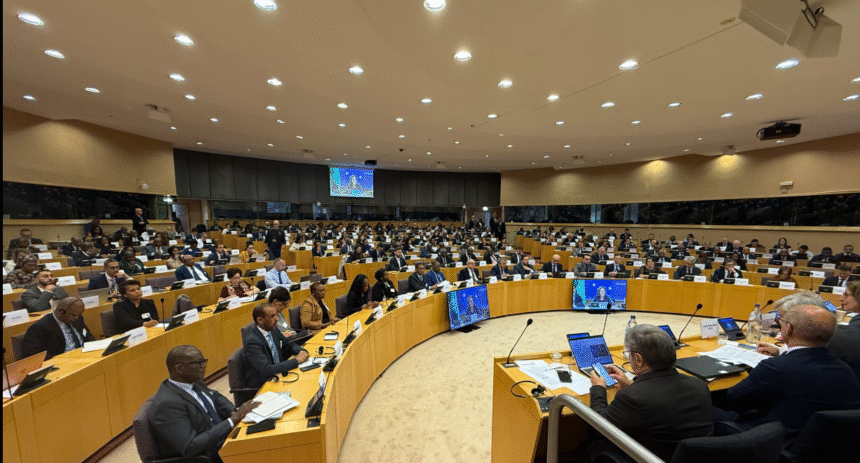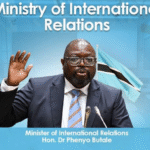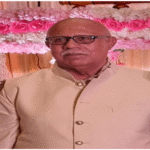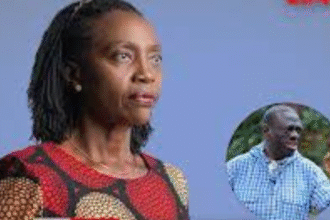By Jean Durand
Brussels, Belgium – Foreign ministers from the European Union (EU) and the African Union (AU) convened in Brussels on Wednesday, reaffirming their commitment to bolster cooperation in areas of peace, security, and economic partnership. The ministers emphasized the urgent need to translate existing commitments into concrete action, particularly in a rapidly evolving global landscape.
The meeting, the third ministerial-level gathering since the EU-AU Summit in February 2022, served as an opportunity to assess progress and strategize future collaboration. Both parties reiterated their dedication to strengthening multilateralism and international cooperation, underscoring the importance of upholding international law as the bedrock of a just and equitable global order.
“[We] reaffirmed commitments to strengthening multilateralism and international cooperation as well as preserving the integrity of international law as the foundation for a just and fair global order,” a statement read out by the deputy chairperson of the AU commission stated. “It is important to sustain the collective efforts to increase inclusiveness and effectiveness of the multilateral institutions with the UN at its core; in the pursuit of peace and security, we have underscored the necessity of our continued cooperation.”
Economic ties were also a central focus, with both blocs pledging to strengthen economic collaboration, promote integrated and resilient markets, and encourage investments that foster inclusive growth and create opportunities across both continents.
The meeting, co-chaired by EU foreign affairs chief Kaja Kallas and Tete António, Chairperson of the AU Executive Council, comes at a critical juncture. The war in Ukraine, the ongoing conflict in Sudan, and shifting geopolitical dynamics, particularly in the Sahel region, present significant challenges.
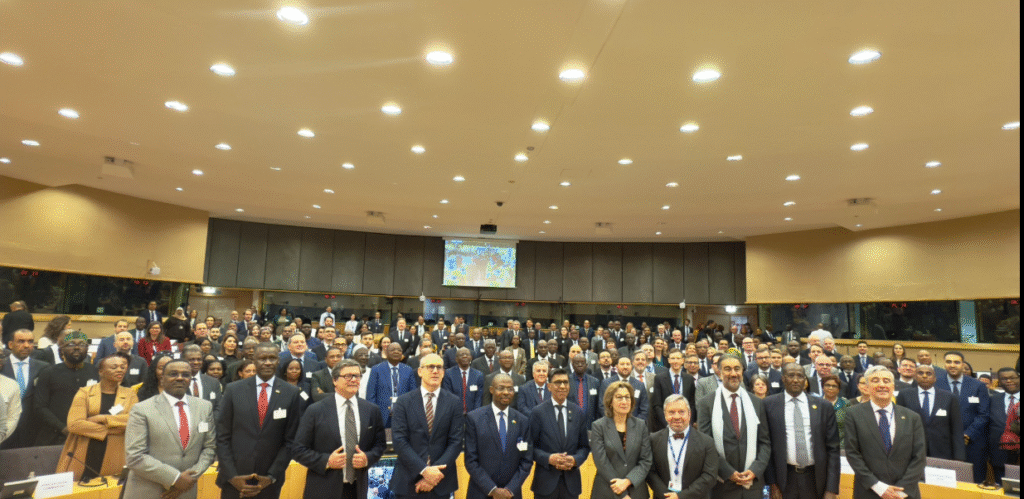
Kallas acknowledged the complexities, highlighting the challenge of combating misinformation, particularly from Russia. “We have to fight the misinformation and foreign malign influence all the time, but it is, of course, increasingly hard,” she stated. “But saying that does not mean that we have to give up. We still have to counter the narratives and fight the misinformation.”
Addressing the evolving situation in the Sahel, where France’s influence has waned and Russia has gained traction, Kallas announced the appointment of a new EU Special Representative for the region. She emphasized the importance of listening to the perspectives of African countries and developing a Sahel strategy that is informed by local needs and realities. “We are also going to discuss the new Sahel strategy. That is why I also had many bilateral meetings today, also asking the African countries for their input. To really hear from the ground how they see this, what could help, what could be the developments there, and what we could do.”
While the EU grapples with the war in Ukraine and seeks to redefine its transatlantic relationship, Africa faces pressing challenges, including the conflict in Sudan and tensions in the Democratic Republic of Congo. Kallas reiterated the EU’s commitment to supporting African partners through the European Peace Facility, amounting to over €1 billion, and highlighted that more than half of all EU Common Security and Defense Policy missions operate in Africa.
The ministers discussed the Sudan crisis, with Kallas affirming the EU’s support for the African Union’s mediation efforts. “We continue to support also the African Union in this (solving the crisis), when it comes to the mediation efforts, regionally. All these processes also in Africa have to be African-led and African-owned, even if there is mediation needed.”
The Brussels meeting, attended by over 70 delegations, including more than 50 ministers, paved the way for deeper collaboration in critical areas such as raw materials, artificial intelligence, regional integration, mobility, and migration flows. The AU emphasized renewed commitments to addressing climate change, advancing food security, enhancing educational opportunities, and promoting cultural exchange.
Highlighting the growing importance of the AU on the global stage, Kallas celebrated the organization’s full membership in the G20, a development strongly advocated for by the EU. As the EU and AU approach their 25th anniversary of partnership, both sides signaled their intent to strengthen their relationship and address shared challenges through enhanced cooperation and mutual understanding.


